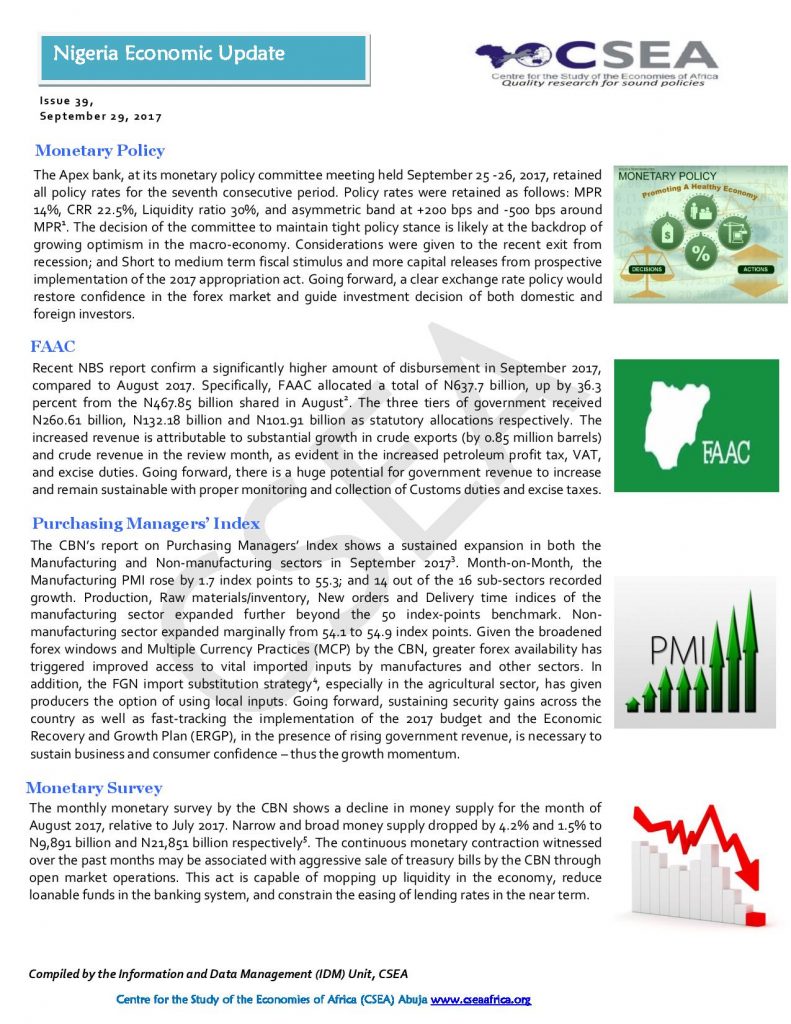Macroeconomic Report & Economic Updates

October 11, 2017
Nigeria Economic Update (Issue 39)
The monthly monetary survey by the CBN shows a decline in money supply for the month of August 2017, relative to July 2017. Narrow and broad money supply dropped by 4.2% and 1.5% to N9,891 billion and N21,851 billion respectively. The continuous monetary contraction witnessed over the past months may be associated with aggressive sale of treasury bills by the CBN through open market operations. This act is capable of mopping up liquidity in the economy, reduce loanable funds in the banking system, and constrain the easing of lending rates in the near term.
Related
Nigeria Economic Update (Issue 5)
The Naira continued to depreciate in the
review week. At the parallel market, naira exchanged for N498/$ on January 27,
2017 and N500/$ on February 3, 2017. Despite the weekly sales of forex to BDCs and
the significant improvements in the external reserves, the naira has continued
to lose value to other currencies. The pressure on the naira has been triggered
by escalating scarcity of forex in the spot market, likely due to
forex hoarding. However, in the preceding week, the CBN sold $660 million in forwards
contract in an attempt to manage liquidity and stabilize the naira.
In the face of growing speculation in the parallel market, the monetary
authority should institute mechanisms that would discourage excessive forex
hoarding among licensed BDC operators. An initiative that monitors transaction
dealings in the parallel market would go a long way in detecting erring BDC
operators.
Implementing The Fiscal Responsibility Act At The State Level In Nigeria
Fiscal responsibility acts have become increasingly common tools to enhance fiscal prudence and public expenditure transparency in many countries. In Nigeria, fiscal profligacy at the sub-national level has emerged as a major contributor to state corruption and macroeconomic instability.
